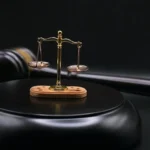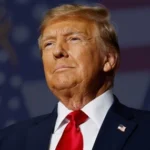In a significant policy shift, President Donald Trump has signed an executive order to halt financial assistance to South Africa, citing concerns over the nation’s land reform policies and its legal actions against Israel. The administration also announced plans to prioritize the resettlement of South African farmers and their families as refugees in the United States.
The executive order, signed on February 7, 2025, alleges that the South African government is “confiscating land” and “treating certain classes of people very badly,” though it does not provide specific evidence to support these claims. The White House’s summary of the order states, “The government of South Africa blatantly discriminates against ethnic minority Afrikaners.” As a result, the U.S. will cease aid and assistance to South Africa until these issues are addressed.
This move follows recent criticisms from Elon Musk, the South African-born billionaire who now leads the Department of Government Efficiency in the Trump administration. Musk has been vocal about South Africa’s new land-expropriation laws, describing them as a threat to the country’s white minority. He has also accused the South African government of implementing “openly racist ownership laws.”
South African President Cyril Ramaphosa has defended the land reform policies, emphasizing their aim to address historical injustices stemming from the apartheid era, during which Black South Africans were dispossessed of their lands. The Expropriation Act, signed into law last month, facilitates the state’s ability to expropriate land in the public interest, particularly land that is unused or would serve the public good if redistributed. Ramaphosa has stated that the government has not confiscated any land and that the policy seeks to balance racial disparities in land ownership.
In response to the U.S. executive order, Ramaphosa’s office issued a statement addressing “issues of misinformation and distortions.” The statement reiterated South Africa’s commitment to “constitutionally embedded values of the respect for the rule of law, justice, fairness, and equality.” Ramaphosa also engaged in discussions with Musk to clarify the intentions and implications of the land reform policies.
The U.S. administration’s decision to cut aid is further influenced by South Africa’s recent legal action against Israel at the International Court of Justice, where it has accused Israel of genocide related to military actions in Gaza. The White House cited this case as an example of South Africa taking positions against Washington and its allies.
Critics argue that the U.S. administration’s stance is based on misconceptions about South Africa’s land reform policies. They contend that the Expropriation Act does not permit arbitrary land seizures and is a necessary step to rectify historical inequalities in land distribution. The issue of land ownership remains a sensitive and politically charged topic in South Africa, given the enduring legacy of colonialism and apartheid.
The suspension of aid and the plan to resettle South African farmers as refugees mark a notable shift in U.S. foreign policy toward South Africa. This development underscores the complex interplay between domestic policies, international relations, and historical contexts. As the situation evolves, it will be crucial to monitor the responses from both nations and the broader international community.













